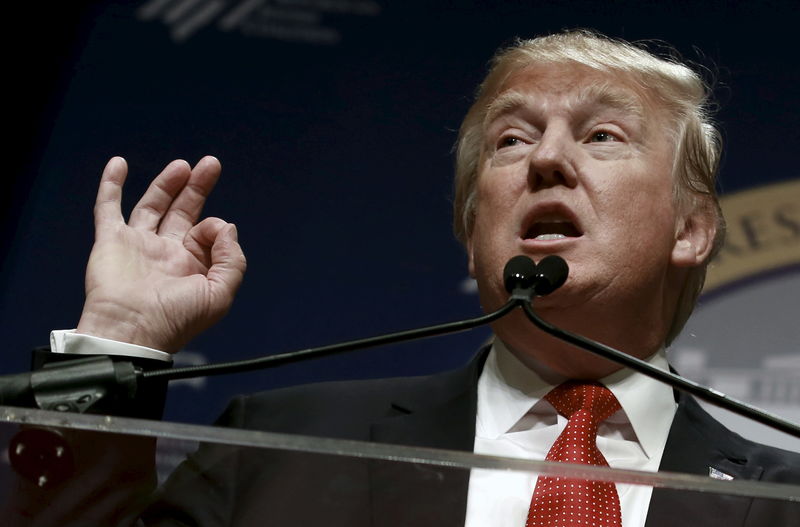By Dan Williams
JERUSALEM (Reuters) - Israeli officials close to Prime Minister Benjamin Netanyahu have brushed off remarks by U.S. presidential candidate Donald Trump to a Jewish audience that some commentators called offensive.
Trump, the Republican front-runner for the 2016 White House race, on Thursday teased Jewish party donors in Washington.
"You're not going to support me even though you know I'm the best thing that could ever happen to Israel," Trump told the Republican Jewish Coalition. "You're not going to support me because I don't want your money."
The quip, and Trump's description of himself as "a negotiator like you folks", were deemed "offensive stereotypes" by the Times of Israel website.
A U.S. affairs analyst for Israel's Haaretz newspaper described the billionaire property developer's comments as "blatant Jewish stereotyping".
Israeli government spokesmen did not respond to Trump's remarks. But two cabinet members from Netanyahu's right-wing Likud party sounded unfazed on Friday.
"I think that at the end of the day Donald Trump is known as a candidate whose almost every statement is a provocative statement. So it might be said that the Jews got off cheap compared to his other statements," Immigration Minister Zev Elkin told Israel Radio.
"I don't think anyone should draw lessons from this or that statement," Elkin said, adding Israel should stay out of U.S. politics while American Jews "weigh up the various candidates according to what they represent and make a decision".
That view was echoed by Israeli Tourism Minister Yariv Levin, who was interviewed separately about Trump's remarks.
"If this is what he thinks, let him think so. I don't think it is our business," Levin told Tel Aviv radio station 102 FM.
"There can be disagreements both with (U.S. President Barack) Obama and with Trump and with others, and I can even promise that we will have a great deal of cooperation with whichever president is elected."
In his speech, Trump played up his pro-Israel credentials and Jewish relatives. He drew occasional applause for condemning Obama and Democratic presidential hopeful Hillary Clinton.

But when he wavered in answering a question about whether he would consider Jerusalem the undivided capital of Israel, boos broke out in the crowd. Palestinians want East Jerusalem, captured by Israel in a 1967 war, for their future state.